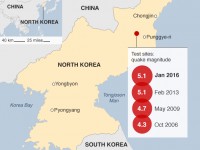
Wu Zhenglong, Senior Research Fellow, China Foundation for International Studies
Feb 19, 2016
China and the U.S. agree on the need to impose sanctions, but not on the process and purpose. The starting point for imposing new sanctions should be to promote denuclearization and safeguard peace, not to escalate the tensions and not to cause chaos on the Korean peninsula.
Richard Weitz, Senior Fellow, Hudson Institute
Feb 17, 2016
Fundamentally, Chinese leaders seek to change Iran’s behavior, but not its regime. PRC policy makers want Iranian oil, but they are cautious about irritating more important commercial partners, especially the United States; when defending Tehran, Beijing strives to avoid confronting Washington directly.
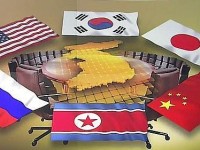
Yang Wenjing, Research Professor, Institute of American Studies, CICIR
Feb 02, 2016
There are voices inside China as well as the US that urge Beijing to punish North Korea’s “bad behavior” more harshly. But China and the US interpret the very end and means of the situation differently, In China’s mind, the situation is more a US responsibility rather than China’s, and use of coercion as the dominant tool has been proved ineffective.
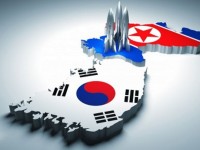
Richard Weitz, Senior Fellow, Hudson Institute
Feb 02, 2016
PRC policy makers have found themselves cross-pressured: They would prefer that Pyongyang refrain from provocative actions like nuclear weapons testing, yet are unwilling to impose the substantial pressure on the DPRK desired by the United State for fear that its regime would collapse and China would suffer economic and security costs.

Doug Bandow, Senior Fellow, Cato Institute
Jan 21, 2016
The lesson of the DPRK’s latest nuclear test is that talking to North Korea offers a better hope of success than ignoring it. But then, that’s what Beijing has been telling the U.S. for a long time.
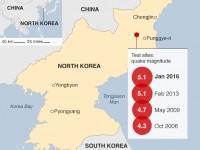
George Koo, Retired International Business Consultant and Contributor to Asia Times
Jan 18, 2016
George Koo describes how a treaty between the U.S. and North Korea was within grasp until George W. Bush’s administration halted the proceedings. Since then, dealing with Pyongyang has become a blame game between the U.S. and China.
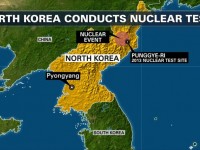
Ted Galen Carpenter, Senior Fellow, Randolph Bourne Institute
Jan 15, 2016
Washington should propose a “grand bargain” to Pyongyang by formally ending the state of war on the Korean Peninsula, lifting of all except narrowly defined military sanctions against the North, and U.S. diplomatic recognition of the North Korean regime. In exchange, Pyongyang would agree to place its nuclear program under international safeguards and extend diplomatic recognition to South Korea.
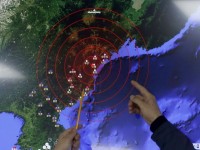
Fan Jishe, Professor, the Central Party School of Communist Party of China
Jan 08, 2016
“Strategic Patience” has not served the US well as a policy, nor has a collection of unilaterally pursued sanctions, diplomatic pressure, isolation and military deterrence. Even late in a president’s second term, there is an opportunity to shift gears and seek a new approach.
Feng Zhaokui, Honorary Academician, Chinese Academy of Social Sciences
Nov 06, 2015
Because of both past history and the extreme potential danger posed by the weapons themselves, people have reason to demand that Japan show an honest and responsible attitude, and to take action to dispel concerns of the international community about its nuclear intentions.
Li Shaoxian, President, China Institute for The Study of Arabian Countries, Ningxia University
Aug 24, 2015
The Iranian nuclear deal, formally known as the Joint Cooperation Plan of Action, is attributable to foreign policy adjustments by both the US and Iran, and the decision to meet each other half way.
Back to Top

- China-US Focus builds trust and understanding between the U.S. and China through open dialogue among thought leaders.
- Our Offerings
- Topics
- Videos
- Podcasts
- Columnists
- Research Reports
- Focus Digest
- Stay Connected
-
Thanks for signing up!
- Get the latest stories from China-US Focus weekly.